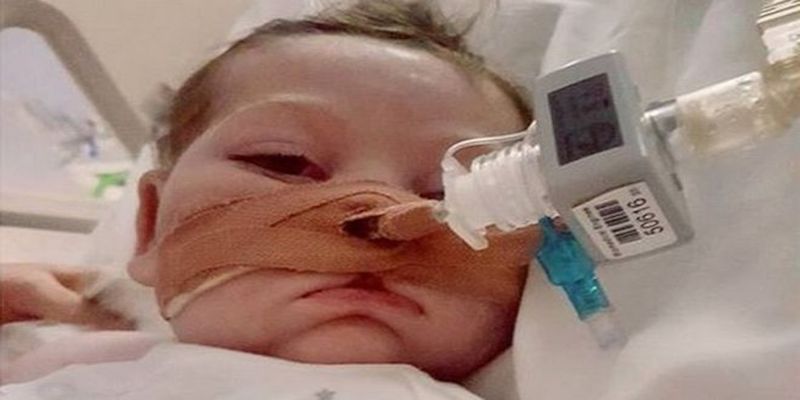The European Court of Human Rights has rejected a plea from the parents of terminally-ill baby Charlie Gard.
Chris Gard and Connie Yates lost their final legal bid to be able to bring their son to the US for treatment.
Specialists at the Great Ormond Street Hospital believe that Charlie has no chance of survival and the court agreed, concluding that further treatment would “continue to cause Charlie significant harm”.
Charlie is 1 of 16 children in the world to have mitochondrial depletion syndrome – a condition which causes progressive muscle weakness and brain damage.
His parents previously seen a Supreme Court challenge to continue Charlie’s life support fail.
European Court judges now concluded it was most likely Charlie was “being exposed to continued pain, suffering and distress” and undergoing experimental treatment with “no prospects of success… would offer no benefit”.
They said that the application presented by the parents was “inadmissible” and said the court’s decision was “final”.
The court “also considered that it was appropriate to lift the interim measure” which had required doctors to continue providing life support treatment to Charlie.
It’s now likely that Charlie’s life support machine will be turned off within a few days following discussions between the hospital and his family.
Charlie’s parents raised £1.3m on a crowdfunding site to pay for the experimental treatment in the US.
Yates indicated the money would go towards a charity for mitochondrial depletion syndromes if Charlie did “not get his chance”.
“We’d like to save other babies and children because these medications have been proven to work and we honestly have so much belief in them. If Charlie doesn’t get this chance, we will make sure that other innocent babies and children will be saved”, she said.
Great Ormond Street Hospital said that the decision marked “the end of what has been a very difficult process” and its priority was to “provide every possible support to Charlie’s parents as we prepare for the next steps”.
“There will be no rush to change Charlie’s care and any future treatment plans will involve careful planning and discussion,” a hospital spokesman said.
